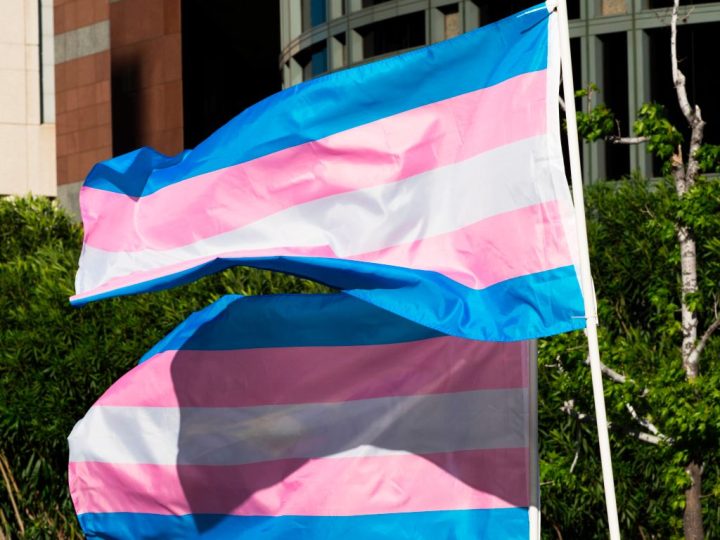The decision by NHS England to end the prescription of puberty blockers to minors at gender identity clinics will be a source of relief to those who have fought a long, hard and unpopular campaign against this practice. When these people, including whistle-blowing clinicians, feminists, gay rights activists and concerned parents, first stuck their heads above the parapet, the entire political establishment was in lockstep behind the gender ideology. The Tories and Labour. The NHS and the media. The lawyers and the academics. The third sector and the corporate world. Many of these institutions are still chugging down the Kool-Aid but the new regulations represent a significant victory for medical ethics and human rights.
There is always a ‘but’ and in this case it refers to Scotland. NHS Scotland is a separate organisation to NHS England. In practice, that means that clinical policy north of the border is sometimes at odds with that in England. You might assume that this would not matter in this case which is, after all, about whether children should be prescribed drugs that disrupt the natural progress of biology and body chemistry. The 2022 Cass Review noted ‘gaps in the evidence base’ on the effects of puberty blockers and the new NHS England policy finds ‘not enough evidence to support the safety or clinical effectiveness’ of these drugs.
There are real people on the sharp edge of this: confused and distressed teenagers and their worried parents
Dr Nicola Steedman, Scotland’s deputy chief medical officer, said at the time that the Cass Review would be ‘closely considered both by Scottish government and NHS Scotland’. In response to yesterday’s announcement, the Scottish government said that it was ‘engaged with NHS England on its planned study into the use of puberty blockers in young people’s gender identity healthcare’ and that ‘discussions are ongoing to determine what future engagement is appropriate’.
While NHS Scotland has always been able to take a different tack from NHS England, devolution created an added political dimension. Since 1999, health has been entirely devolved to the Scottish parliament and therefore under the control of the SNP-run Scottish government. That government is an enthusiastic adherent of gender ideology, as seen in its Gender Recognition Reform Bill, which would have allowed Scots to change their legal sex from the age of 16 without the involvement of a doctor and on the basis of self-identification.
The UK government took the unprecedented step of blocking Holyrood’s legislation over its potential impact on Britain-wide law, a decision since upheld by the courts. Scottish first minister Humza Yousaf, like his predecessor Nicola Sturgeon, prides himself on his support for trans rights and, also like his predecessor, depends upon the support of the Scottish Greens to prop up his government. The Scottish Greens’ commitment to gender identity ideology rivals that of Stonewall.
Because this is Scottish politics, the constitution is never far from the surface. Central to the SNP’s governing strategy is a policy of differentiation, which sees the Scottish government take the opposite stance to the UK government on a plethora of policy issues in order to amplify differences between Scotland and England. The theory behind the strategy is that the more political and policy distinctions there are between the two nations, the more Scots will come to see themselves at odds with the rest of the UK and the more sympathetic they will grow towards independence.
If it seems infeasible that Scottish ministers would apply this strategy to something as serious as the medical safety of under-18s, note that these ministers initially refused to replicate the UK government’s ban on XL Bully dogs. Only after reports of Bully owners planning to move north of the border with their animals, and attacks by those dogs already in Scotland, did the SNP government relent and agree to copy and paste the English law in full.
Strange as it might sound, the XL Bully debacle may be the best hope of seeing England’s hormone rules adopted in some form by the NHS in Scotland. Despite their ideological and strategic predispositions, Scottish ministers will be alert to a number of possible knock-on effects for Scotland from this English announcement. One is that if NHS Scotland continues handing out drugs to children about which NHS England has safety and effectiveness concerns, there may be a perception that young Scots are being used as guinea pigs for body-altering drugs. Another is that parents of children currently receiving, or waiting or hoping to receive, puberty blockers in England may decide to relocate to Scotland to procure these treatments. That would place additional pressure on the Sandyford, Scotland’s only gender identity clinic for under-18s. In setting their face against the evidence for ceasing routine prescribing of puberty blockers, evidence which has now been acted upon elsewhere, the Scottish government and NHS Scotland could be storing up trouble for the very near future.
As ever when we address this topic, it is incumbent upon us to remember that this is not just about politics or policy. There are real people on the sharp edge of this: confused and distressed teenagers and their worried parents. They need support and reassurance but they also deserve clarity and the kind of clinical and ethical rigour that is applied to every other patient in receipt of every other medical intervention. There is a balance that must be struck between patients’ and parents’ wishes and clinicians’ duty to do no harm. The evidence is, at best, not yet clear on whether prescribing puberty blockers is safe, effective or desirable as a matter of policy or ethics, and so the responsible course of action would be to stop prescribing these drugs until the facts are better known. This is the sensible way forward not just in England but in Scotland too.







Comments